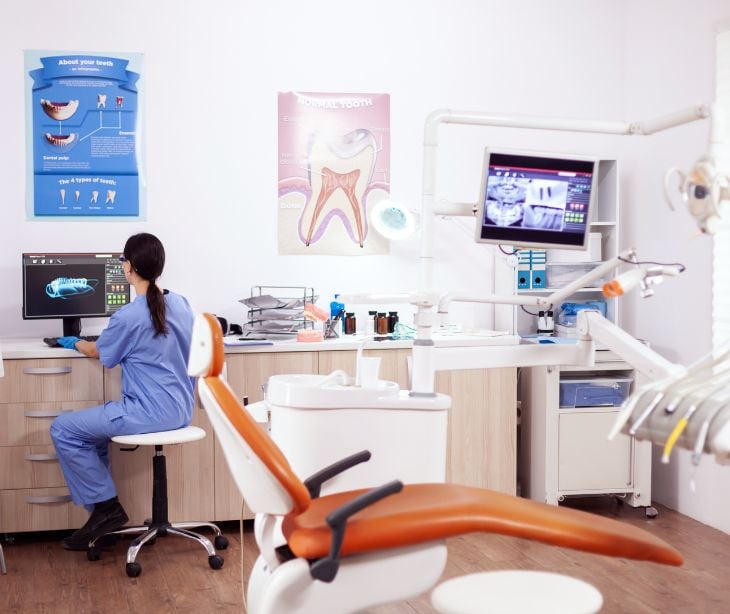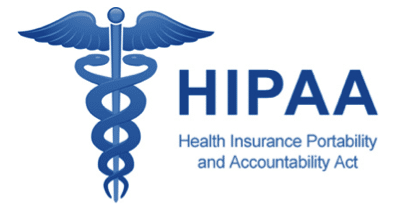1 min read

While there is no official HIPAA compliance checklist for dental offices, this guide provides the key steps and measures to safeguard patient privacy and maintain data security. Following these steps will help dental offices maintain HIPAA compliance.
HIPAA compliance checklist for dental practices
- Conduct a risk assessment: This involves identifying potential risks and vulnerabilities to patient privacy and data security. Assessing areas such as physical access controls, network security, and employee practices allows dental offices to pinpoint areas of concern and implement appropriate measures to mitigate risks effectively. How to perform a risk assessment
- Create policies and procedures: These policies should address the use, access, and disclosure of protected health information (PHI). They should cover patient consent, employee access controls, and data breach protocols. Regularly reviewing and updating these policies ensures dental offices align with changing regulations and address emerging security risks.
- Designate a privacy officer: This individual will monitor and address patient privacy concerns, train staff members on HIPAA regulations, and ensure that the practice adheres to the established policies and procedures.
- Train staff: Dental practices should provide training programs that cover the basics of HIPAA, patient privacy rights, PHI handling procedures, and the importance of maintaining confidentiality.
- Set physical safeguards: Dental practices must implement physical safeguards to protect the physical storage and access to PHI. This includes securing patient records in locked cabinets or rooms, limiting physical access to authorized personnel only, and implementing protocols for the proper disposal of confidential documents. What physical safeguards can dental offices implement for HIPAA compliance?
- Technical safeguards: Implement strong passwords and authentication mechanisms, encrypt sensitive data, regularly update software and systems, and employ firewalls and antivirus software. Regular security audits and assessments can help identify vulnerabilities and ensure appropriate security measures are in place.
- Administrative safeguards: Administrative safeguards involve policies and procedures that govern the use, access, and disclosure of PHI by dental practice employees. These measures include assigning unique user IDs for employees, implementing role-based access controls, maintaining audit logs, conducting periodic reviews of access permissions, and ensuring that employees receive appropriate training and guidance on handling PHI.
- Business associate agreements (BAAs): Dental practices often engage third-party vendors or contractors that handle PHI, such as IT service providers or billing companies. They must have business associate agreements (BAAs) with these entities. BAAs outline the responsibilities of the business associates in protecting PHI and ensuring that they comply with HIPAA regulations.
- Notice of privacy practices (NPP): Creating and distributing a Notice of Privacy Practices (NPP) is a HIPAA requirement. The NPP informs patients about their rights regarding the privacy and security of their health information and how their information may be used and disclosed. Dental practices must develop a clear and concise NPP, making it readily available to patients, both in physical form at the office and on their website.
- Breach notification procedures: Dental practices must establish clear procedures for responding to potential breaches of PHI. In the event of a breach, they must promptly identify and contain the breach, assess the risk to individuals affected, and notify the affected parties as required by HIPAA regulations. A well-defined breach notification plan helps dental practices respond effectively, minimize potential harm, and comply with legal requirements.
- Regular audits and documentation: Review policies, procedures, and security measures to identify gaps or weaknesses. Additionally, maintaining detailed documentation of HIPAA compliance efforts, including risk assessments, training records, breach incident reports, and policy updates, aids in demonstrating compliance and providing evidence in case of audits or investigations.
Maintaining HIPAA compliance ensures dental practices can protect patient privacy and maintain data security. Following this HIPAA compliance checklist can help dental practices establish robust policies, implement necessary safeguards, train their staff effectively, and respond appropriately in the event of a breach.
Subscribe to Paubox Weekly
Every Friday we'll bring you the most important news from Paubox. Our aim is to make you smarter, faster.



